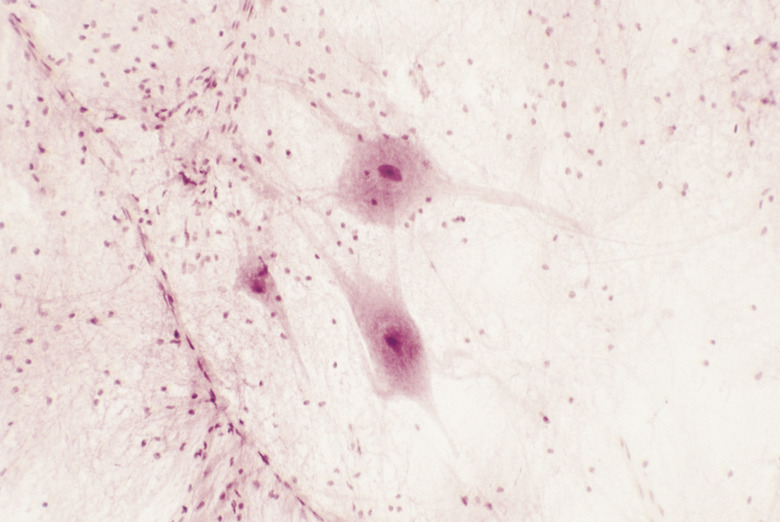The Definition Of Molecular Cell Biology
When you step into a molecular cell biology (MCB) classroom for the first time, it might be difficult to imagine what types of information you will learn. The first time you crack open a Lodish 4th edition molecular and cellular biology book, you may even wonder if you are reading a textbook about cells or chemistry or genetics?
Surprise! Molecular cell biology is actually a bit of all three.
TL;DR (Too Long; Didn't Read)
Molecular cell biology is the place where three scientific disciplines meet: biochemistry, cell biology and genetics. The field explores the relationships between cell processes and reactions, macromolecules and gene control pathways to answer a wide variety of scientific questions.
A Quick and Dirty History of Biology
A Quick
and Dirty History of Biology
The study of biology has existed for as long as humans have observed the natural world and asked questions about what they see. In the 18th and 19th centuries, actual fields of biological study emerged for career scientists. Most of these fields, such as botany and zoology, focused on plant and animal life since those organisms are easy to see with the naked eye or rudimentary technology.
As the tools of biology advanced, especially with the introduction of cutting edge technology like compound microscopes and **electron microscopes,** scientists began to explore the infinitesimally small components that comprise the living world. They discovered that organisms are made of cells and that those cells are made of even smaller components like organelles and biomolecules.
Thanks to these discoveries, biology quickly branched into many sub-disciplines. Three of these were fundamental to MCB emerging as its own field of study.
- Cell biology, which studies the structure and function of the basic unit of life. * **Biochemistry,**
which explores the chemical processes and reactions that make life possible. * Genetics, which looks at the way organisms inherit traits and regulate gene expression.
Molecular Cell Biology Takes Off
Molecular
Cell Biology Takes Off
The topics encountered by students enrolled in cellular and molecular biology classes overlap with many other fields of study. These include:
- bioinformatics
- biophysics
- biotechnology
- engineering
- enzymology
- genomics
- molecular biology
- proteomics
Molecular Medicine Emerges
Molecular
Medicine Emerges
The study of molecular cell biology enables scientists to understand how cell programs and reactions function normally as well as the relationships between those processes and gene expression. It may also reveal the reasons for dysfunction in those programs, which can cause disease. If scientists can uncover why a disease occurs, they might figure out how to reverse it or prevent it.
This is the role of molecular medicine, which uses the information gleaned through molecular cell biology to create new treatment options, including pharmaceuticals. Molecular medicine is closely related to personalized medicine.
This medical specialty probes the patient's genome to uncover diseases for which the patient is at risk. Then, the health care provider can target interventions to help the patient avoid or overcome those diseases.
By looking at the cell programs and reactions that take place inside the cell as well as the ways the cell regulates gene expression, molecular cell biology is one of the most promising areas of scientific study. From a medical and health care consumer perspective, the advances made in the MCB field are more than just intellectually exciting. They point to a whole new way of looking at human health and disease.
Cite This Article
MLA
Mayer, Melissa. "The Definition Of Molecular Cell Biology" sciencing.com, https://www.sciencing.com/definition-molecular-cell-biology-2360/. 9 April 2019.
APA
Mayer, Melissa. (2019, April 9). The Definition Of Molecular Cell Biology. sciencing.com. Retrieved from https://www.sciencing.com/definition-molecular-cell-biology-2360/
Chicago
Mayer, Melissa. The Definition Of Molecular Cell Biology last modified August 30, 2022. https://www.sciencing.com/definition-molecular-cell-biology-2360/
